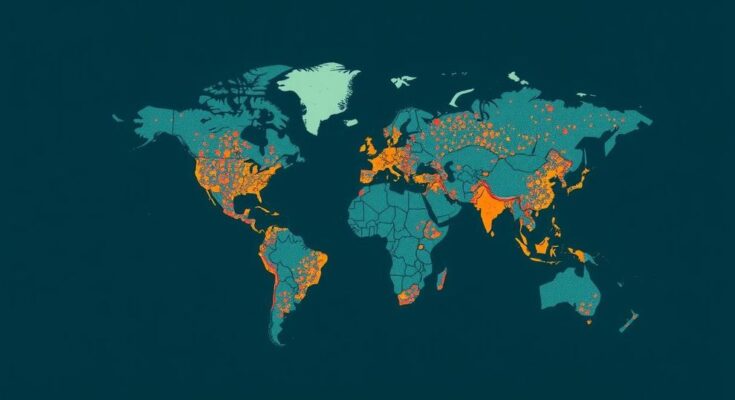A new report highlights the severe threats climate change poses to global health, with record levels of extreme weather events and health impacts. Key findings reveal alarming trends such as increased heat-related deaths among the elderly and food insecurity. The report emphasizes the urgent need for immediate action and sustainable practices ahead of the COP29 climate talks. Positive signs include improvements in pollution reduction and growth in renewable energy use.
A significant report released on Wednesday highlights the escalating dangers climate change poses to global public health, marking new record levels of threats. The report emerges in the context of unprecedented extreme weather events, including heatwaves, wildfires, hurricanes, droughts, and floods, during what is projected to be the hottest year on record, 2023. The timing is critical as the United Nations COP29 climate talks approach in Azerbaijan, coinciding with a U.S. election that could potentially see climate change skeptic Donald Trump reclaim the presidency. Compiled by 122 experts, including representatives from notable organizations such as the World Health Organization, the eighth Lancet Countdown on health and climate change presents a gloomy forecast indicating significant health risks affecting populations worldwide. The findings reveal concerning trends across 10 out of 15 key health indicators tracked over the past eight years, highlighting rising incidents of extreme weather, increased heat-related deaths among the elderly, the proliferation of infectious diseases, and food insecurity resulting from environmental disturbances. Marina Romanello, the executive director of Lancet Countdown, expressed to AFP that the report illuminates alarming threats to health and survival that we have not previously witnessed on such a scale. The increase in heat-related fatalities among individuals aged 65 and older has surged by 167 percent since the 1990s, attributed to rising temperatures expanding the habitats of disease-carrying mosquitoes. The report points out a record of over five million dengue cases worldwide in the past year. From 2016 to 2022, approximately five percent of the world’s tree cover was lost, adversely impacting the Earth’s capacity to mitigate carbon dioxide emissions. The report also critiques the role of oil and gas corporations, along with certain governments and financial institutions, in exacerbating climate change, noting that global greenhouse gas emissions have risen again despite decades of cautioning against this trend. The report emphasizes the increase in fossil fuel production by large oil and gas companies, which benefited financially from record profits and continued to receive substantial subsidies—amounting to $1.4 trillion in 2022—fueling a regression in commitments toward a sustainable future. However, Romanello pointed out positive developments, such as a nearly seven percent reduction in deaths linked to fossil fuel-related air pollution between 2016 and 2021, attributed mainly to improvements in coal combustion processes. Additionally, the proportion of clean renewable energy for electricity generation nearly doubled during the same timeframe, reaching 10.5 percent. With a noted shift towards incorporating health concerns in climate negotiations, there is hope that the forthcoming COP discussions and national climate strategies will reflect this focus. Romanello cautioned that urgent action is imperative; the time to act has long passed, reiterating that the repercussions of inaction have already manifested in tragic losses of life.
Climate change has become a central issue influencing multiple facets of global health, with mounting evidence linking environmental changes to health crises. The Lancet Countdown is an annual report that tracks the intersection of public health and climate change, providing crucial insights into how climate factors jeopardize health and wellbeing. The current report emphasizes the escalating nature of these challenges, correlating a rise in extreme weather events and their health implications with changes to the environment linked to human activity, particularly fossil fuel consumption. As the United Nations COP29 discussions loom, the report underscores the urgency of addressing climate change as a public health emergency.
In conclusion, the recent Lancet Countdown report delineates record threats posed by climate change to health globally, accentuating the need for immediate action to avert further loss of life. While it identifies substantial challenges, including rising extreme weather events and health risks accompanied by fossil fuel reliance, it also notes encouraging progress in pollution reduction and increased adoption of renewable energy. The impending COP29 talks provide a critical opportunity for global leaders to pivot towards sustainable practices that prioritize health and environmental stewardship.
Original Source: jen.jiji.com




